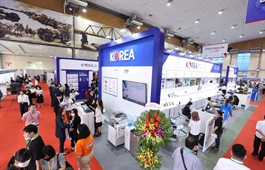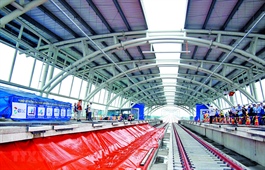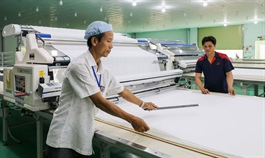Vietnam’s retailers accelerate shopping experiences to meet consumer demand
Vietnam’s retailers accelerate shopping experiences to meet consumer demand
Mobile orders have been instrumental in helping maintain social distancing and adherence to local guidelines.
Vietnam’s retailers have focused on accelerating shopping experiences to meet consumer demand both in-store and online.
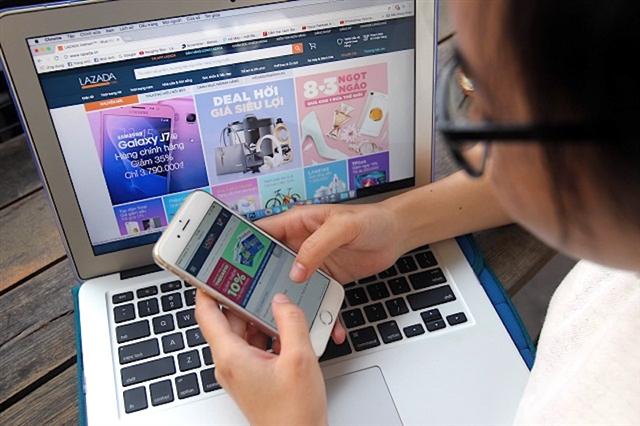
Vietnamese consumers are familiar with online shopping. Photo: Phuong Thu
|
The latest Zebra’s annual study revealed the finding after analyzing the attitudinal behavior of shoppers, retail associates and retail executives, and examining the retail and technology trends impacting shoppers’ purchasing behavior in North America, Latin America, Asia-Pacific, Europe and the Middle East.
The study found that, in Asia Pacific including Vietnam, retail decision-makers and store associates have seen a dramatic increase in the need for convenience and efficiency as the pandemic has catapulted shoppers’ usage and affinity for mobile ordering and smart checkout solutions.
Mobile orders from smartphones and tablets have seen tremendous growth and been instrumental in helping maintain social distancing and adherence to local guidelines. “Seventy-two per cent of surveyed shoppers have ordered from mobile devices and 82% of them are highly likely to continue using it,” the study wrote.
Millennials (88%) and Gen X (79%) shoppers were the primary users of mobile ordering but nearly half of Boomers (47%) used it too, and 74% of them are likely to continue using it in the future.
Half of surveyed shoppers have interacted with self-checkouts in the last six months and more than 60% agreed the self-checkout solutions provide an improved customer experience. While agreement is highest among Millennials at 73%, 66% of Gen X shoppers and 50% of Boomers have also realized an improved customer experience from self-checkout solutions in 2020.
“Meanwhile, 86% of retail decision-makers and 71% of store associates agree self-checkouts improve the customer experience. Almost nine-in-10 decision-makers and more than seven-in-10 associates believe self-checkouts freed employees up to do higher priority tasks and better serve customers while helping meet health and safety mandates and protocols,” the study wrote.
Changing to be winner
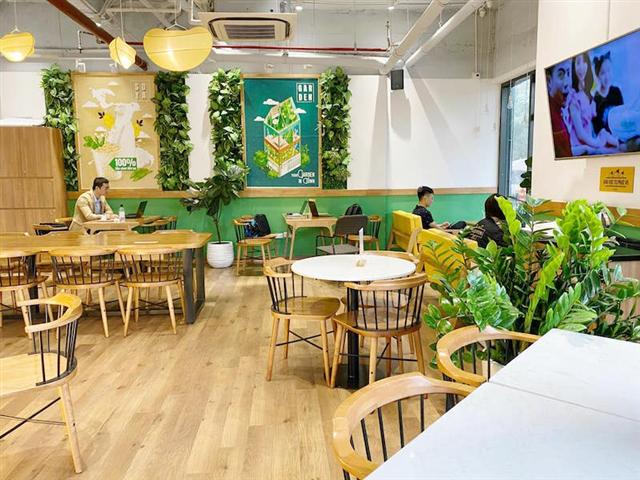
Soya Garden closes nearly 30 outlets in Hanoi and HCMC. Photo: Soya Garden
|
In Vietnam, retailers in the food & beverage (F&B) market have changed to adapt to the new normal period as well as the shopping behavior. F&B retailers have closed a series of large-scale outlets in big cities including Golden Gate - the Vietnamese owner of restaurant chains, Tokyo Deli and Daruma - the Japanese restaurant chains, and the Vietnamese organic soya chain Soya Garden.
Instead, the chains have focused on providing online services to accelerate shopping experiences for customers. Soya Garden is shaking hand with its tech partners to boost take-away orders as well as plans to develop new small outlets or kiosk, and remains best outlets meeting the consumer demand.
According to Hoang Tung, Founder & CEO of Pizza Home, Covid-19 made the sector difficult but many large retailers in Vietnam had quickly adapted to the new situation. “However, they need to focus on improvement of experience and convenience in their long-term strategy,” he told Hanoitimes.
“Retailers in Vietnam are aware the success hinges on elevating the shopper experience,” said Tracy Yeo, Country Lead for Vietnam, Zebra Technologies Asia Pacific.
She added that investments in analytics, mobile ordering and smart checkout will provide a more seamless and satisfying omnichannel experience. The Zebra study found that shoppers’ in-store and online satisfaction significantly declined in 2020 due to out-of-stocks, product variety, online delivery cost and timing and returns.



